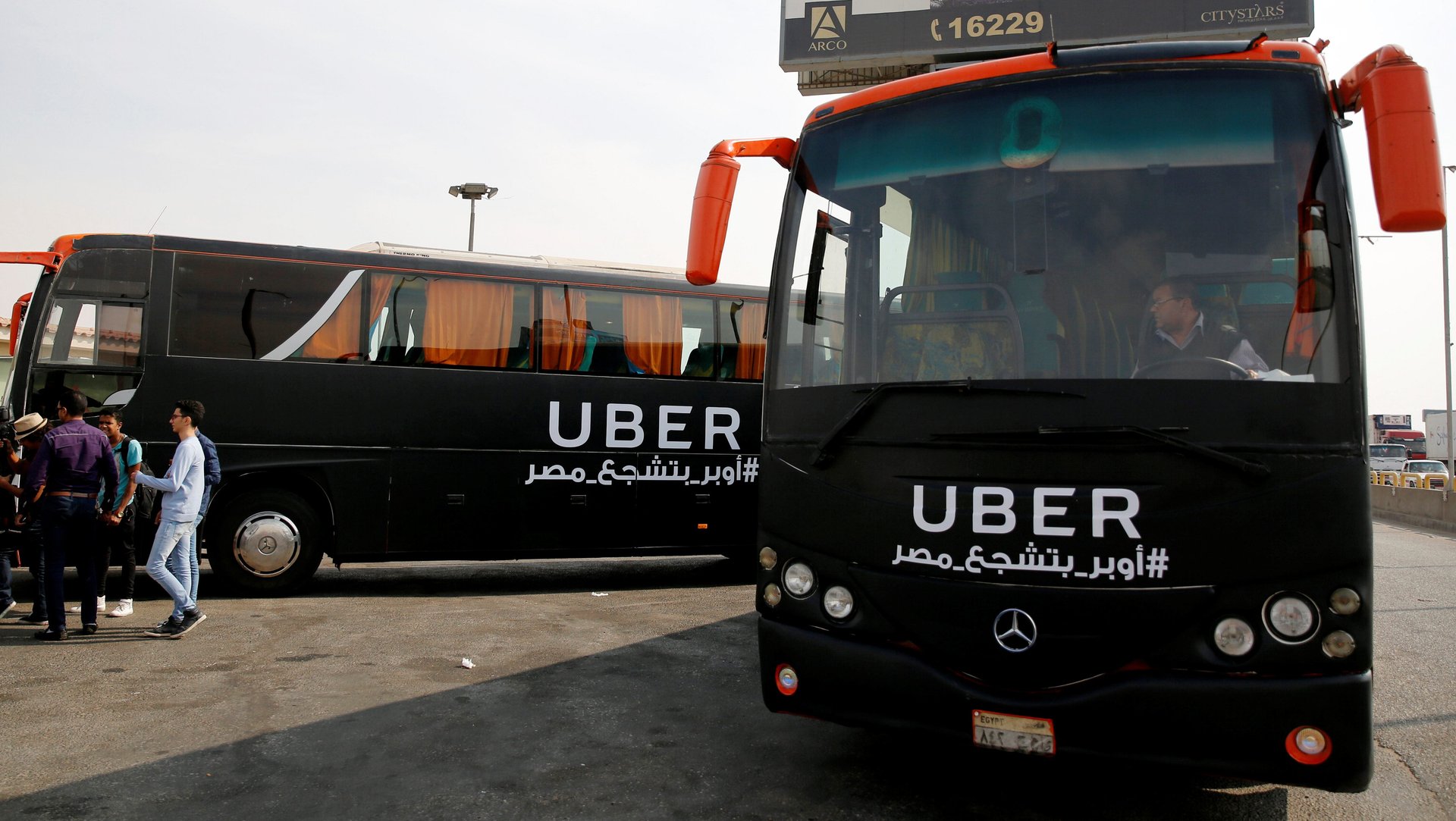Uber’s four-year journey through Africa’s fast-changing cities has been bumpy, but disruptive
Uber is celebrating four years in Africa—a marked milestone shaped by violent protests, policy disputes, and price wars since the company first launched in the continent in 2013.


Uber is celebrating four years in Africa—a marked milestone shaped by violent protests, policy disputes, and price wars since the company first launched in the continent in 2013.
In that time, the San Francisco-based company has disrupted local cab industries, created tens of thousands of driver jobs and enlisting 1.8 million active riders in sub-Saharan Africa. As the dominant ride-sharing app in Africa, Uber has grown its footprint to eight countries, namely: South Africa, Kenya, Nigeria, Tanzania, Uganda, Ghana, Egypt, and Morocco.
Uber’s relentless expansion, strong brand, and larger driver network has won it customers, particularly among those countries with young, digital-savvy middle classes but also won it, at times violent, enemies among the local taxi companies worried for their livelihoods in cities with few jobs.
Egypt, for instance, is currently one of Uber’s fastest growing markets anywhere in the world. The company is even planning to invest in a national bus service that will subvert the gridlocked streets of Egypt’s cities and tap into a market of daily commuters who face unreliable public transportation.
But since its entry into the African market, Uber has also faced a lot of bumps and limitations. Drivers in South Africa and Kenya have been complaining about Uber growing into a monopoly, protesting about cuts in fare prices, and calling themselves “Uber slaves.”
Rivals like Safaricom’s Little Ride in Nairobi, the Estonian ride service Taxify (Lagos), and Oga Taxi in Nigeria have also been offering cheaper rates, pinning their strategy on providing traffic jam deals and even allowing customers to haggle prices. In Uganda, services like SafeBoda are trying to convince customers that boda boda motorcycles are the best option to hack around their fast-growing city’s traffic nightmare.
Amid reports of traditional taxi drivers threatening Uber drivers, the question of how to regulate the service has come into sharp focus in African capitals. In Ghana, Nigeria, and Kenya, Uber has faced favorable regulatory frameworks, with officials even pledging to protect it from those lobbying to ban or restrict the service.
Yet Uber still faces challenges dealing with African governments: in June, the New York Times reported that the Egyptian government met with Uber executives in order to demand data about customers, drivers, and journeys—which could all be a powerful tool in the hands of the much-criticized security services.